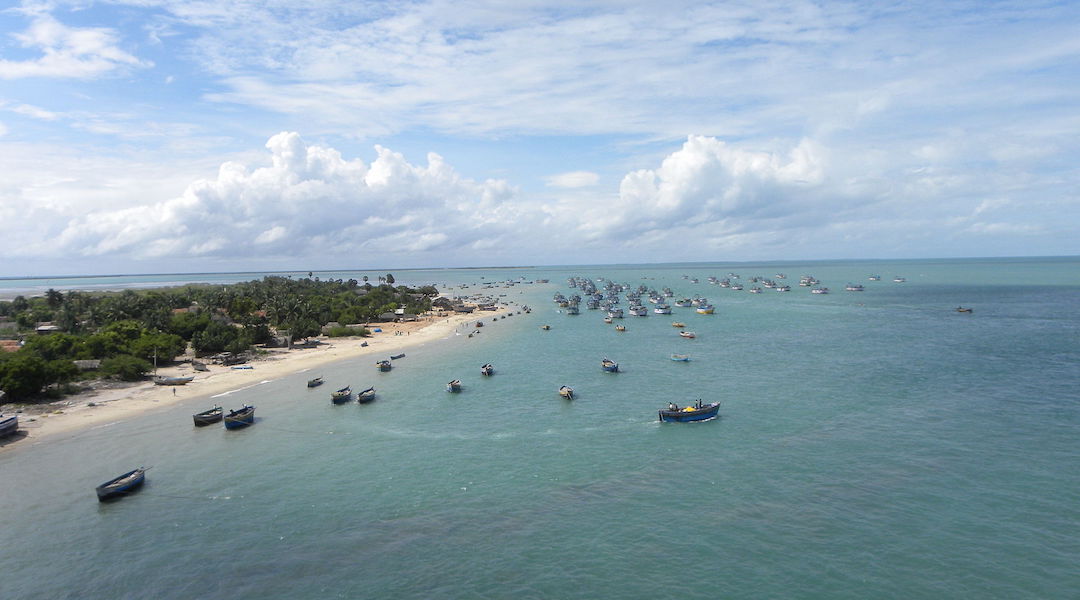Stone inscription in southern India reveals evidence of region’s oldest synagogue
It could help researchers shine a new light on some of the earliest Jewish history and trade activity in India

A view of an island in Ramanathapuram, a district in the southern Indian state of Tamil Nadu. (Wikimedia Commons)
(JTA) — An inscription on a stone pillar found in a small village in southern India may reveal new information about the oldest synagogue in the area and possibly shine a new light on the early history and trade activity of Jews in the region.
Based on the writing style, researchers say the inscription dates back to the 13th century. It was found in the Ramanathapuram district in the southeastern Indian state of Tamil Nadu, local media reported.
The pillar’s inscriptions contain mention of several religious places of worship called “palli” in Tamil and included Suthapalli, Tharisapalli and and Pizharpalli, all located in Periyapattinam, a village in Ramanathapuram district. Suthapalli was the Jewish place of worship, researchers said, while Tarisapalli and Pizharpalli were a Syrian Christian Church and an Islamic place of worship, respectively.
Jewish groups in the region have history in India dating back to antiquity, and the earliest documentation of local Jewish traders comes from the 9th and 10th centuries.The earliest group were the Cochin Jews, who claim ancestry back to the time of the Hebrew King Solomon. The B’nei Menashe and Bene Ephraim groups claim to link their ancestry to the 10 lost tribes of Israel.
Baghdadi Jews came to India in the mid-18th and 19th centuries as traders, and European Jews came in the 20th century, fleeing World War II.
The pillar inscription was found not far from modern-day Chennai (formerly Madras), where Sephardic Jews who had fled the Spanish Inquisition had formed a community in the 15th and 16th centuries.
Though the inscription dates hundreds of years before they arrived, Davvid Levy, a Jew from Chennai, found family documents that place his ancestors in Ramanathapuram, where the stone inscription was found, in the early 20th century.
Levy’s was the last remaining Jewish family in Chennai until they were forced to leave in 2020 following a property dispute, he told the Jewish Telegraphic Agency. Levy used to care for Chennai’s Jewish cemetery, which the Indian government had moved multiple times. Now, as he and his family seek a permanent home outside India, a maid maintains the cemetery, he said.
This article originally appeared on JTA.org.
A message from our CEO & publisher Rachel Fishman Feddersen
I hope you appreciated this article. Before you go, I’d like to ask you to please support the Forward’s award-winning, nonprofit journalism during this critical time.
We’ve set a goal to raise $260,000 by December 31. That’s an ambitious goal, but one that will give us the resources we need to invest in the high quality news, opinion, analysis and cultural coverage that isn’t available anywhere else.
If you feel inspired to make an impact, now is the time to give something back. Join us as a member at your most generous level.
— Rachel Fishman Feddersen, Publisher and CEO